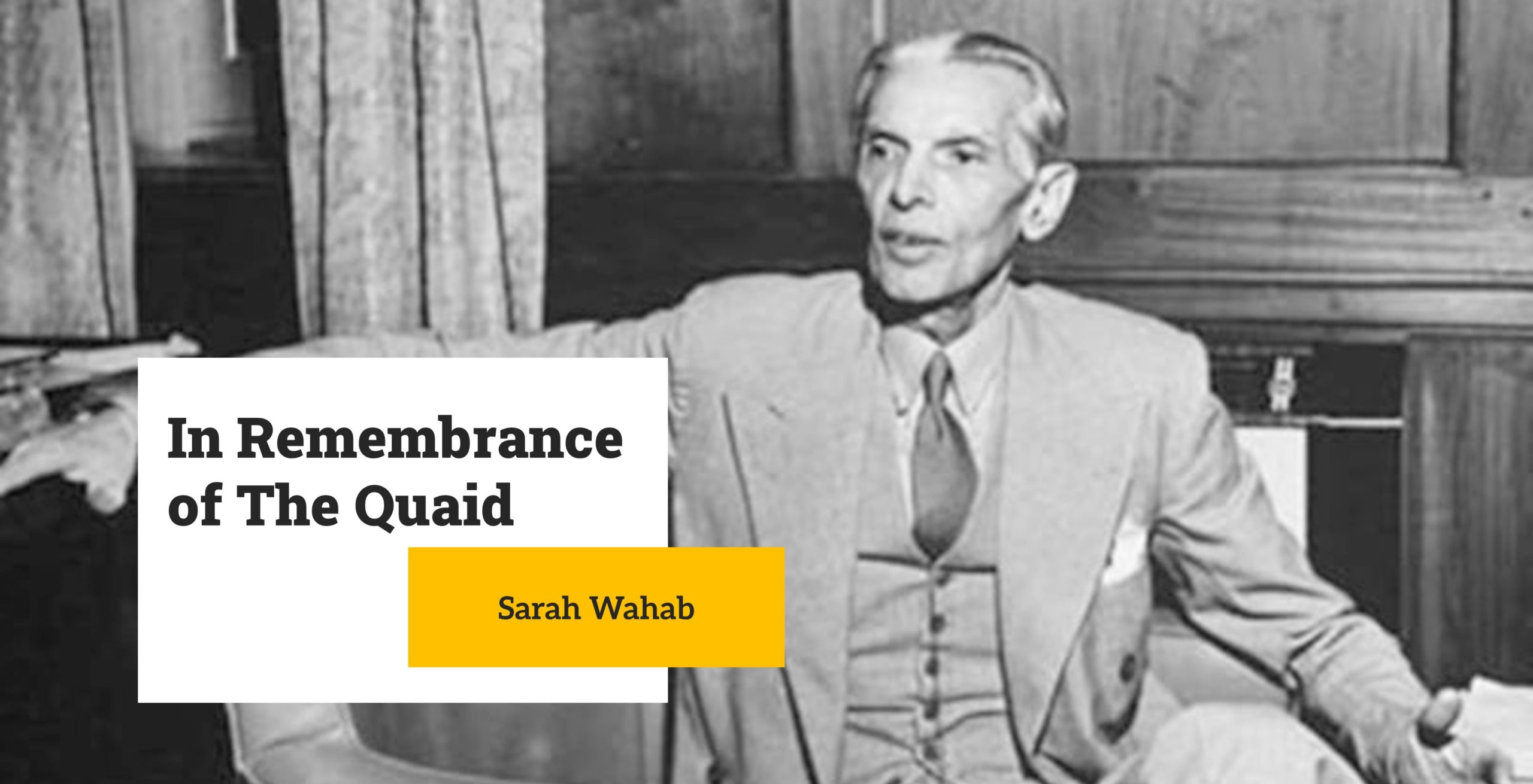In Remembrance of The Quaid
Muhammad Ali Jinnah was born on the 25th of December 1876. He was a barrister, politician and the founder of Pakistan. Jinnah served as the leader of the All Muslim League until 1947, whereupon the birth of Pakistan he was assigned the role of Pakistan’s first-ever Governor-General. He is revered in Pakistan as the Quaid-i-Azam (Great Leader) and Baba-i-Quam (Father of the National). His birthday is observed as a national holiday in Pakistan.
Born at Wazir Mansion in Karachi, Jinnah was trained as a barrister at Lincoln’s Inn in London, England. Upon his return to British India, he enrolled at Bombay High Court and took an interest in national politics. Jinnah rose to a position of prominence in the Indian National Congress in the first two decades of the 20th century. In the initial years of his political career, Jinnah became an advocate for Hindu-Muslim unity. He further rose to a position of prominence after he helped draft the Lucknow Pact in the year 1916 between the Congress and the All-India Muslim League. Jinnah became a leading figure in the All-India-Home Rule League Movement and also proposed a fourteen-point constitutional reform plan to safeguard the political rights of the Muslims in the Indian subcontinent. However, in 1920, Jinnah resigned from the Congress after it agreed to follow a campaign of Satyagraha, which Jinnah considered as political anarchy.
By 1940, Jinnah believed that the Muslims of the subcontinent should have their own state to avoid the possible demeaning status they may be subjected to if the subcontinent was to be established as an independent Hindu-Muslim state. Hence, in that very year, the Muslim League, led by Jinnah, passed the Lahore Resolution which demanded that a separate nation be set up for the British Indian Muslims. The League, led by Jinnah, was further able to win the support of the people as during the Second World War, most of the leaders of the Congress were in prison. Hence, the League was able to obtain a landslide victory in the provincial elections held shortly after the war as it was able to win most of the seats reserved for Muslims.
Jinnah worked tirelessly to ensure that the British agreed to partition the subcontinent so that the Muslims of the subcontinent could obtain their freedom from the tyranny and oppression of the Hindus. After a lot of struggle, Jinnah was finally able to convince the British into segregating the two different nations and establishing a separate state for the Muslims. Hence, the two leading parties eventually came to the conclusion that a Muslim-majority state for Muslims should be established and a predominantly Hindu-India should be established for the Hindus.
After the establishment of Pakistan, Jinnah was selected as the first-ever Governor-General of Pakistan. Even though the role of Governor-General was one that was mostly considered to be celebratory, Jinnah ignored that and industriously worked to establish the new nation’s government and policies. He also helped aid the millions of Muslim migrants who had emigrated from India, personally supervising the establishment of refugee camps. Furthermore, Jinnah also helped to unite the newly formed nation by assigning Urdu as Pakistan’s national language.
Jinnah died at the age of 71, in September 1948, just a year after Pakistan was established. He left a deep and respected legacy in Pakistan and up to this day, many people and biographers regard him as Pakistan’s best leader. Jinnah is also a source of inspiration for many and as the people of his nation, we should work day and night and make the principles of Quaid-i-Azam Muhammad Ali Jinnah’s principles a constant source of inspiration in our fight against racial discrimination, economic exploitation, religious intolerance and political deprivation.
—
Sarah Wahab a student of Class XI-C (Compassion) shines a light on one of our great leaders, Muhammad Ali Jinnah’s life in her article, “In remembrance of the Quaid”. In the article, she reminisces on his service towards his nation and how the youth should look up to him as their role model.
—
Cover Photo sourced from Dawn





